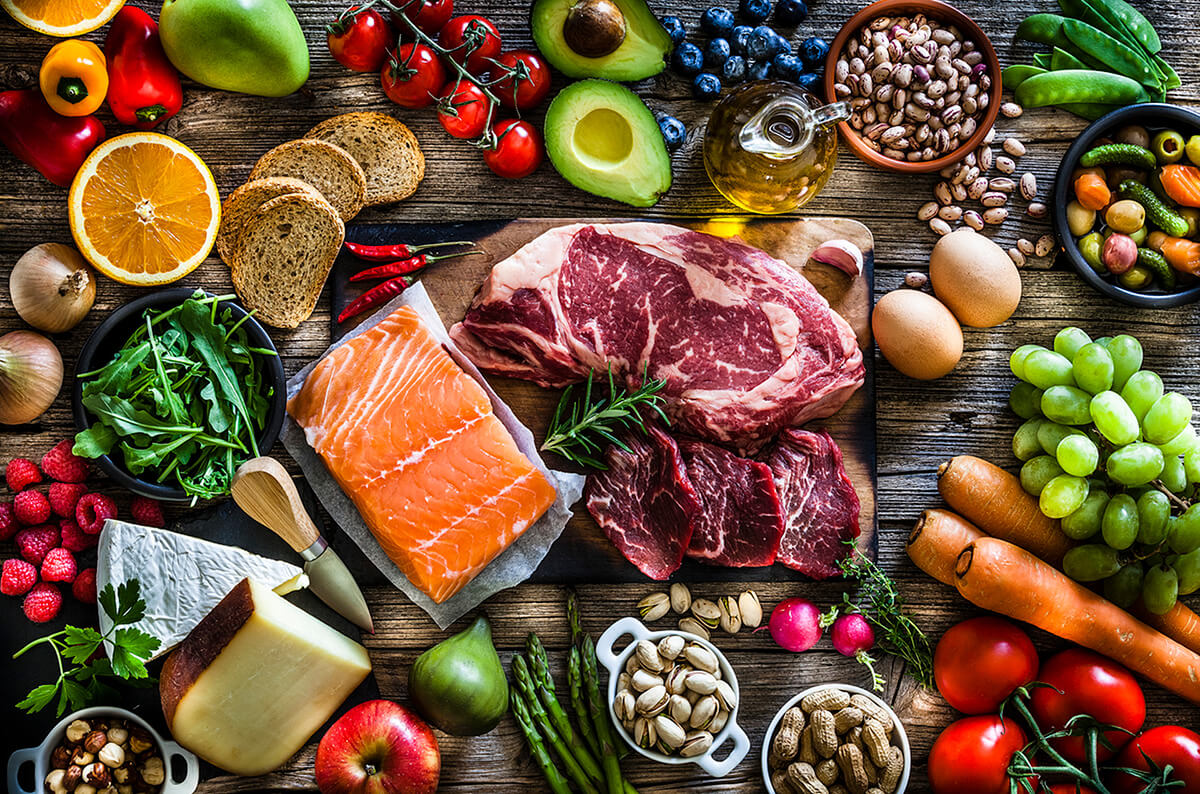Nutrition advice is often over complicated, making it difficult to know what to believe. The truth is, healthy eating is actually quite simple. It only appears complicated because there is so much conflicting information on diets, weight loss, calories and disease.
When it comes to nutrition, many of us have not yet mastered the basics of a healthy diet. In fact, most Australians are still not meeting their fruit and vegetable requirements. If you can focus on getting the basic backbone right, the rest should fall into place. There is no point worrying about powders, supplements and specific vitamins if you have not yet got the basics down pat.
What are the basics when it comes to diet?
Simply put, a balanced diet is one that gives your body the micro- and macronutrients it needs to function optimally. Micronutrients, like vitamins and minerals, are very important to our health, but we only need tiny amounts of them. Macronutrients are the big guns that provide us with energy and they’re the major building blocks needed to support healthy cell growth and development; protein, carbohydrates and fats.
Balance all comes down to getting variety within each of the healthy or “core” food groups. If your usual dietary intake is not balanced, you may develop signs and symptoms of poor health. For example not getting enough wholegrains and fibre makes you more likely to become constipated.
Vegetables
Vegetables may seem an obvious component of a balanced diet, however, the consumption of vegetables amongst Australians is particularly low. The average adult should aim to eat 5-6 serves of vegetables per day.
Fruits
Despite what you may have read on social media, fruit is not loaded with sugar and it is not fattening. While fruit does contain sugar (called fructose), it is a natural slow-burning sugar and reacts differently in your body when packaged as a whole piece of fruit. Fruit is rich in fibre and antioxidants and you should ideally aim for 2 serves a day.
Carbohydrates
Carbohydrates are essential for optimal energy, brain function and to provide fibre to support a healthy gut. Choose wholegrain carbohydrates or vitamin packed starchy vegetables in preference to heavily refined white carbohydrates. As a general guide, aim for 4-6 serves a day.
Lean proteins (meat and poultry, fish, eggs, tofu, nuts and seeds and legumes)
These foods are rich in protein and iron, which are essential for a number of important bodily functions including energy, satiety, muscle growth and development and immunity. Ideally you should aim for 1-3 serves of lean protein a day.
Dairy
Dairy foods are important for bone health and can protect against heart disease and certain cancers. It is estimated that 8 out of 10 Australians are not getting enough dairy in their diets. Aim for 2-3 serves of dairy per day.
Where do treats come in?
Whether your go-to treat is a glass of wine (or two), a muffin with your morning coffee or a couple of squares of chocolate for dessert, treats are a part of the daily food regime for many. A treat or discretionary food is a food that does not offer any strong nutritional properties that would make it a core food. Treats are generally high in energy, sugar and/or fat that may offer taste and pleasure but not any of the essential micro- and macronutrients.
Whilst processed foods such as chocolate, chips etc tend to be rich in calories, sugar, fat and salt (and should be limited), eating them occasionally and in small amounts is not going to be detrimental to your overall health.
Where problems can arise is that treats can very quickly become something that we indulge in multiple times a day and the balance between treat foods and core foods in the diet therefore becomes a little out of whack and can get in the way of you reaching your health goals.
So, how do you achieve balance between core foods and treat foods?
Let’s get one thing straight, a balanced healthy diet CAN include treat foods.
Focus on including unprocessed wholefoods in your diet 90% of the time (these are all the foods listed above).
This then leaves around 10% of your intake for enjoying the foods you love, that might not necessarily provide your body with nutrients. We all have foods like this that we absolutely love and that bring a lot of joy to our lives. Rather than completely restricting these foods or treating them as “forbidden”, allow yourself to enjoy them every now and again.
Bottom line
Remember that healthy eating is about consistency, not perfection. Focus on getting the basics right as this is going to have the biggest impact on your health and wellbeing. It’s a lot harder to have to keep getting back on track than it is to just stay on track.
Thanks for reading our advice on getting the best of a balanced diet.
Anna & Alex
The Biting Truth















